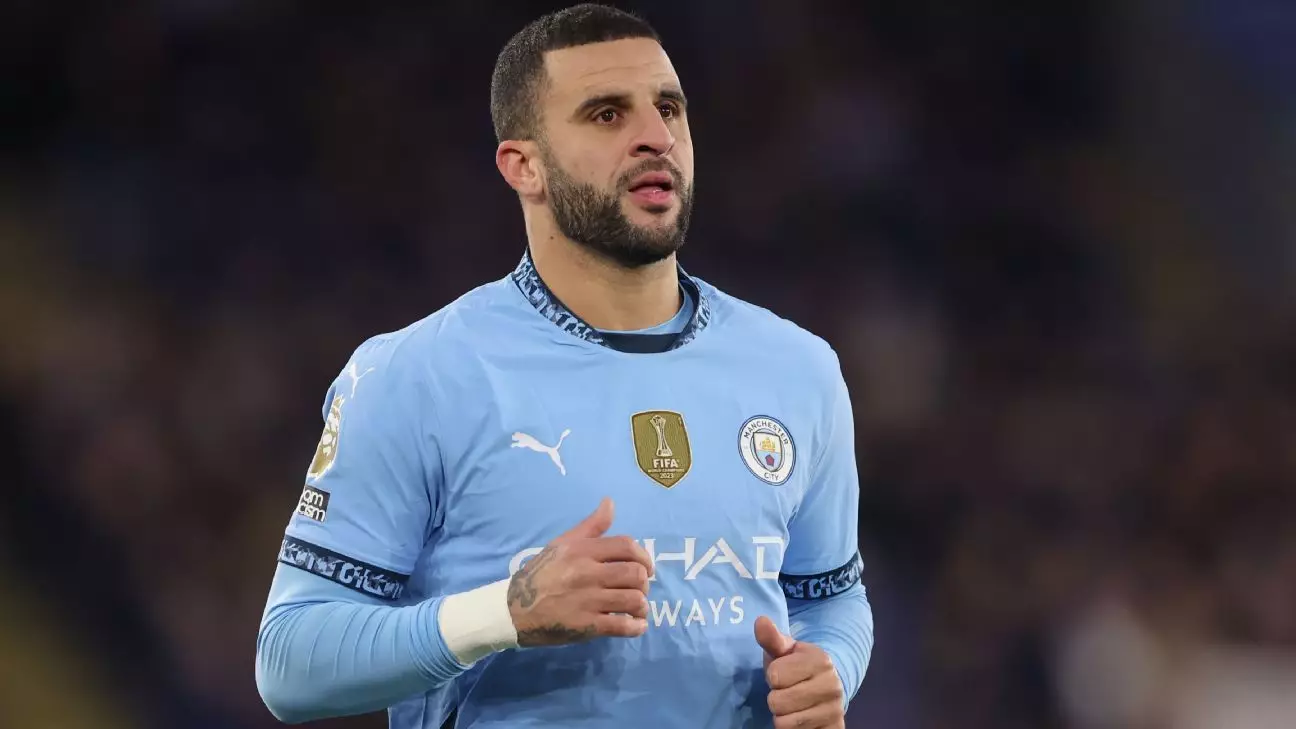Kyle Walker, the seasoned England international and experienced right-back, finding himself on the brink of a transfer to Burnley signifies more than just a change of club—it embodies the complex journey of a veteran player navigating the twilight phase of his career. At 35, Walker’s desire to stay relevant on the international stage fuels his move, reflecting a broader trend among seasoned players to seek regular playing time in familiar environments. His decline from regular fixture at Manchester City, coupled with his loan stint at AC Milan and absence from recent high-profile matches, highlights the brutal reality of professional football: even top performers must adapt as their physical prime wanes. Choosing Burnley, a club fresh from promotion, underscores Walker’s ambition to contribute meaningfully at a club where he can play a pivotal role, potentially prolonging his career and maintaining his international aspirations.
Assessing the Move’s Strategic Value for Burnley
For Burnley, securing Walker represents a bold statement of intent. The Clarets, under Scott Parker’s management and back in the Premier League after their promotion, are clearly aiming to cement their top-flight status with experience and leadership. Walker’s arrival is not merely about filling a squad spot; it’s about adding a veteran presence that can influence younger players and stabilize their backline. While some may perceive this as a gamble—signing a player nearing the end of his prime—it’s a calculated risk grounded in quality and leadership. Walker’s pedigree and exposure at the highest levels of club and international football can inspire confidence within the squad and signal to their opponents that Burnley is serious about competing.
The Broader Context of Transfers in Modern Football
Walker’s potential move also highlights the often overlooked tactical calculus in football transfers. For top-tier clubs like Manchester City, such departures are part of a strategic refresh—freeing up wages, reducing squad depth to manageable levels, and grooming younger talent. Furthermore, City’s willingness to include performance-based bonuses in the deal indicates a pragmatic approach—rewarding success and ensuring value for money. Walker’s move to Burnley, however, exemplifies a different football philosophy: experience over potential. It sparks debate about the true purpose of transfers—are they solely motivated by immediate needs or long-term development? In Walker’s case, it reflects a desire to remain competitive at the highest levels for as long as possible, even if that means stepping down a division.
Implications for England and the Player’s Legacy
Walker’s pursuit of regular minutes to safeguard his spot on the England squad is emblematic of the sacrifices players sometimes make. With the 2026 World Cup on the horizon, staying competitive and visible is critical. Moving to Burnley might initially seem like a step sideways or even backward, but it strategically serves his international ambitions. Such decisions underscore the intense self-awareness professional athletes develop over their careers, balancing club loyalty, personal ambitions, and national duties. Ultimately, Walker’s career continues to be a testament to resilience, adaptability, and an unwavering desire to contribute meaningfully, regardless of the stage he’s playing on.
While critics may question whether this move signifies a decline or a strategic repositioning, one thing remains clear: Kyle Walker’s career journey exemplifies how experience, leadership, and a relentless competitive spirit can redefine an athlete’s legacy, far beyond their years on the pitch.

